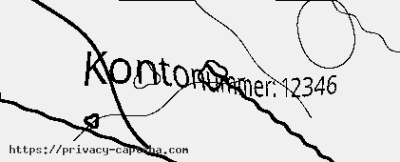CreaRE 2015: Fifth International Workshop on Creativity in Requirements Engineering
CreaRE 2015: Fifth International Workshop on Creativity in Requirements Engineering
https://sites.google.com/site/creare2015/
date: March 23, 2015
place: Essen (Germany)
*** Workshop Agenda ***
14:00-15:00 Kim Lauenroth: Creativity is not a talent, it is a way of operating! (Key Note)
15:00-15:30 Sebastian Adam and Marcus Trapp: Success Factors for Creativity Workshops in RE
16:00-16:30 Jennifer Horkoff and Neil Maiden: Creativity and Conceptual Modeling for Requirements Engineering
16:30-17:30 interactive session and discussion
*** Workshop topic, background and motivation ***
In the past five years, Requirements Engineering (RE) has been increasingly more recognized as creative activity. This is especially true in contexts of developing systems for application areas such as game design, crowdsourcing, assistive health-care, smart cities, and green computing. RE for those areas demands stakeholders to create visions of future software systems and to imagine all their implications. Creativity techniques that have been developed and used in other disciplines and areas of problem-solving, have the potential to be adapted and adopted in today’s RE, becoming the foundation for innovative RE processes addressing both problem analysis and solution design.
*** Goals of the workshop ***
The CreaRE series of workshops brings together RE practitioners and researches engaged in discussing the role of creativity in RE, the array of creativity techniques that can be applied to RE, and the ways in which creativity techniques from other disciplines can be leveraged in RE. Drawing upon the previous workshop editions, the intended purpose of the CREARE’15 workshop is to be a forum for the exchange of emerging ideas, experience and research results. It also aims at raising awareness in the RE community of the importance of creativity and creativity techniques.
*** CreaRE 2015 Program Committee ***
Sebastian Adam Fraunhofer Institut IESE, Germany
Dan Berry University of Waterloo, Canada
Thomas Herrmann Ruhr-University of Bochum, Germany
Eric Knauss Chalmers | University of Gothenburg, Sweden
Anitha PC Siemens AG, Erlangen, Germany
Kurt Schneider Leibniz University Hannover, Germany
Roel Wieringa University of Twente, The Netherlands
Konstantinos Zachos City University London, UK
*** Workshop Organizers ***
Andrea Herrmann, Herrmann & Ehrlich, Germany
Maya Daneva, University of Twente The Netherlands
Joerg Doerr, Fraunhofer IESE, Germany
Anne Hoffmann, Siemens, Germany
https://sites.google.com/site/creare2015/
date: March 23, 2015
place: Essen (Germany)
*** Workshop Agenda ***
14:00-15:00 Kim Lauenroth: Creativity is not a talent, it is a way of operating! (Key Note)
15:00-15:30 Sebastian Adam and Marcus Trapp: Success Factors for Creativity Workshops in RE
16:00-16:30 Jennifer Horkoff and Neil Maiden: Creativity and Conceptual Modeling for Requirements Engineering
16:30-17:30 interactive session and discussion
*** Workshop topic, background and motivation ***
In the past five years, Requirements Engineering (RE) has been increasingly more recognized as creative activity. This is especially true in contexts of developing systems for application areas such as game design, crowdsourcing, assistive health-care, smart cities, and green computing. RE for those areas demands stakeholders to create visions of future software systems and to imagine all their implications. Creativity techniques that have been developed and used in other disciplines and areas of problem-solving, have the potential to be adapted and adopted in today’s RE, becoming the foundation for innovative RE processes addressing both problem analysis and solution design.
*** Goals of the workshop ***
The CreaRE series of workshops brings together RE practitioners and researches engaged in discussing the role of creativity in RE, the array of creativity techniques that can be applied to RE, and the ways in which creativity techniques from other disciplines can be leveraged in RE. Drawing upon the previous workshop editions, the intended purpose of the CREARE’15 workshop is to be a forum for the exchange of emerging ideas, experience and research results. It also aims at raising awareness in the RE community of the importance of creativity and creativity techniques.
*** CreaRE 2015 Program Committee ***
Sebastian Adam Fraunhofer Institut IESE, Germany
Dan Berry University of Waterloo, Canada
Thomas Herrmann Ruhr-University of Bochum, Germany
Eric Knauss Chalmers | University of Gothenburg, Sweden
Anitha PC Siemens AG, Erlangen, Germany
Kurt Schneider Leibniz University Hannover, Germany
Roel Wieringa University of Twente, The Netherlands
Konstantinos Zachos City University London, UK
*** Workshop Organizers ***
Andrea Herrmann, Herrmann & Ehrlich, Germany
Maya Daneva, University of Twente The Netherlands
Joerg Doerr, Fraunhofer IESE, Germany
Anne Hoffmann, Siemens, Germany
AndreaHerrmann - 3. Mär, 11:00
